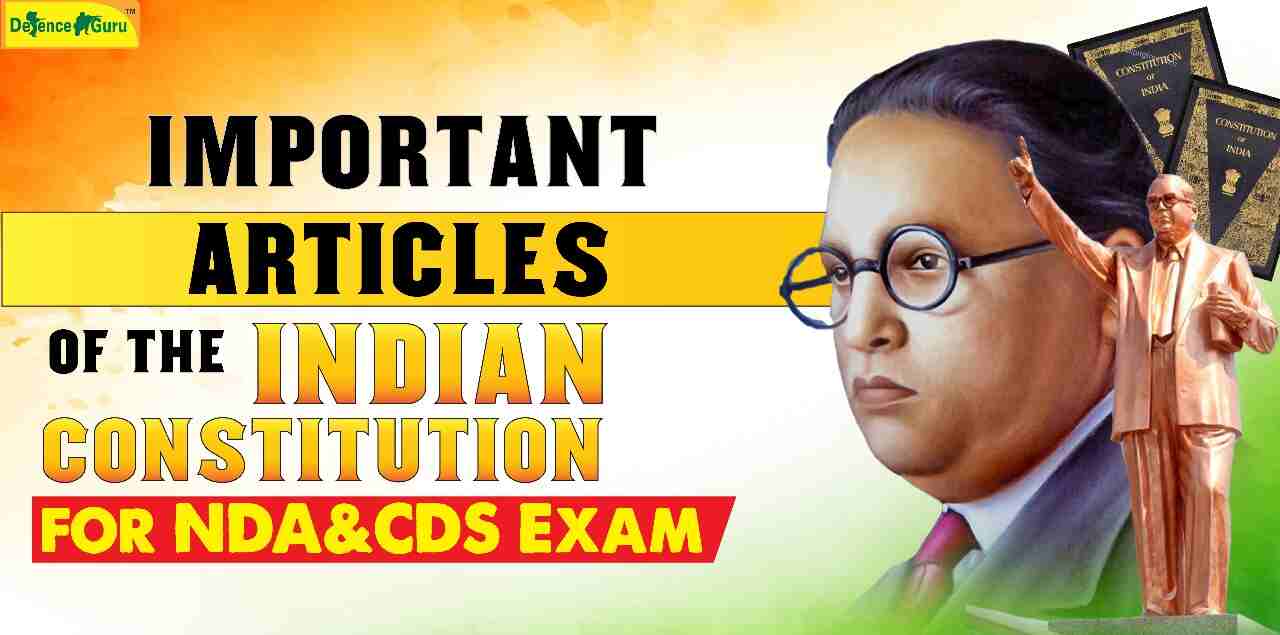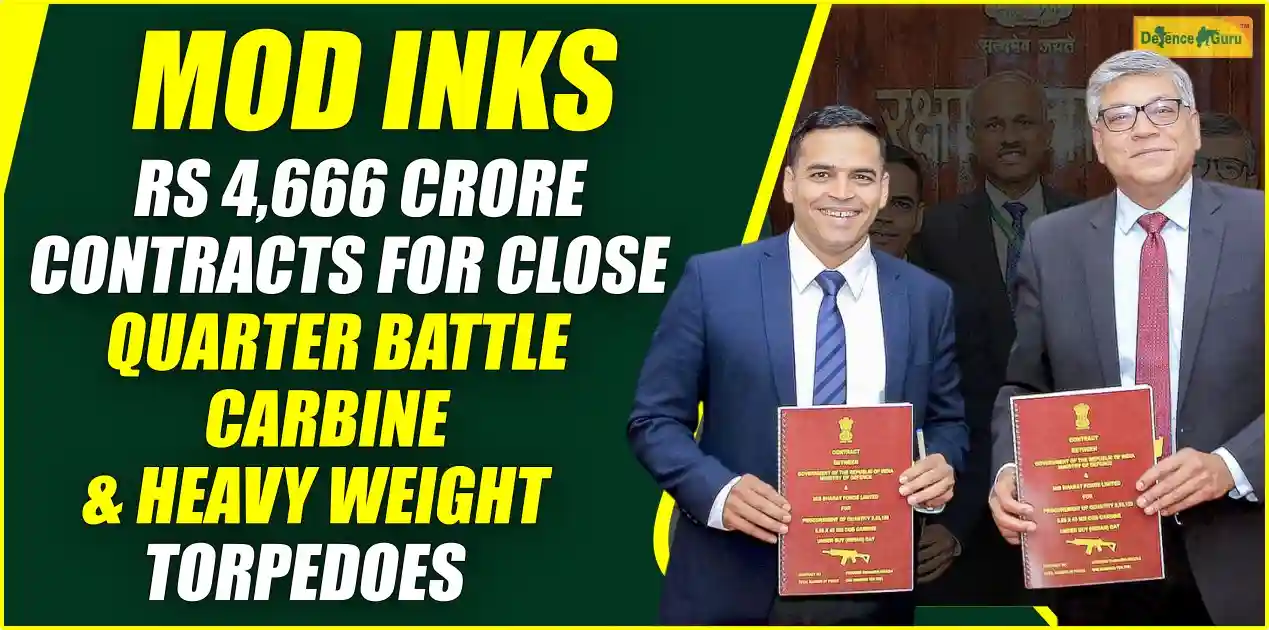Articles from the Indian Constitution are among the repeated topics asked in the GAT paper of the NDA exam. Generally, 3-4 Articles are asked every year in this paper. As you already know the GAT accounts for 600 marks in the NDA exam so this paper can provide you with valuable marks that help you to clear the cut-off of the NDA exam. But, GAT paper is very diverse and it is hard to decide which area to prepare well. The diverse nature of GAT paper also demands selective study because a candidate can not cover English, history, geography, polity, economics, science, and current affairs thoroughly. The same thing applies on the CDS exam also, General Knowledge Paper of the CDS exam is highly diverse and the difficulty is quite great. So, the General Knowledge paper of the CDS exam also requires selective study. In this article, we are going to provide a list of the most important articles of the Indian constitution for the NDA and CDS exams. These are only selected articles which means there is a high possibility that these articles of the Indian constitution can be asked in the upcoming NDA and CDS Exam.
Part I: The Union and Its Territory
Article 1: Name and territory of the Union.
Article 3: Formation of new states and alteration of areas, boundaries, or names of existing states.
Part II: Citizenship
Article 5: Citizenship at the commencement of the Constitution.
Article 6: Rights of citizenship of certain persons who have migrated to India from Pakistan.
Article 11: Parliament's power to regulate the right of citizenship.
Part III: Fundamental Rights
Article 12: Definition of the State.
Article 13: Laws inconsistent with or in derogation of the fundamental rights.
Article 14: Right to Equality.
Article 19: Protection of certain rights regarding freedom of speech, etc.
Article 21: Right to Life and Personal Liberty.
Article 25: Freedom of conscience and free profession, practice, and propagation of religion.
Article 32: Remedies for enforcement of rights conferred by this Part (Right to Constitutional Remedies).
Part IV: Directive Principles of State Policy
Article 36: Definition of DPSP.
Article 39: Principles of policy to be followed by the State.
Article 44: Uniform civil code for the citizens.
Article 48: Organization of agriculture and animal husbandry.
Part IV-A: Fundamental Duties
Article 51A: Specifies the Fundamental Duties of every citizen.
Chapter I: The Executive
Article 52: The President of India.
Article 61: Procedure for impeachment of the President.
Article 72: Powers of the President to grant pardons, etc.
Chapter II: Parliament
Article 79: Constitution of Parliament.
Article 80: Composition of the Council of States (Rajya Sabha).
Article 81: Composition of the House of the People (Lok Sabha).
Article 110: Definition of Money Bills.
Chapter III: Legislative Powers of the President
Article 123: Power of President to promulgate Ordinances during recess of Parliament.
Chapter IV: The Union Judiciary
Article 124: Establishment and constitution of the Supreme Court.
Article 131: Original jurisdiction of the Supreme Court.
Article 136: Special leave to appeal by the Supreme Court.
Chapter V: Comptroller and Auditor-General of India
Article 148: Comptroller and Auditor-General of India.
Chapter I: General
Article 153: Governors of States.
Article 163: Council of Ministers to aid and advise the Governor.
Chapter II: The State Legislature
Article 169: Abolition or creation of Legislative Councils in States.
Article 170: Composition of the Legislative Assemblies.
Chapter III: The State Judiciary
Article 214: High Courts for States.
Article 226: Power of High Courts to issue certain writs.
Part VII: The States in Part B of the First Schedule
Article 239A: Special provisions with respect to Delhi.
Part VIII: The Union Territories
Article 239: Administration of Union Territories.
Part IX: The Panchayats
Article 243: Definitions.
Article 243G: Powers, authority, and responsibilities of Panchayats.
Part IX-A: The Municipalities
Article 243Q: Constitution of Municipalities.
Article 243X: Power to impose taxes by, and Funds of, the Municipalities.
Part X: The Scheduled and Tribal Areas
Article 244: Administration of Scheduled Areas and Tribal Areas.
Chapter I: Legislative Relations
Article 246: Subject matter of laws made by Parliament and by the Legislatures of States.
Article 256: Obligation of States and the Union.
Part XII: Finance, Property, Contracts and Suits
Article 265: Taxes not to be imposed save by authority of law.
Article 280: Finance Commission.
Part XIII: Trade, Commerce, and Intercourse Within the Territory of India
Article 301: Freedom of trade, commerce, and intercourse.
Part XIV: Services Under the Union and the States
Article 309: Recruitment and conditions of service of persons serving the Union or a State.
Article 312: All-India Services.
Part XV: Elections
Article 324: Superintendence, direction, and control of elections to be vested in an Election Commission.
Part XVI: Special Provisions Relating to Certain Classes
Article 330: Reservation of seats for Scheduled Castes and Scheduled Tribes in the House of the People.
Article 335: Claims of Scheduled Castes and Scheduled Tribes to services and posts.
Part XVII: Official Language
Article 343: Official language of the Union.
Article 348: Language to be used in the Supreme Court and in the High Courts.
Part XVIII: Emergency Provisions
Article 352: Proclamation of Emergency (National Emergency).
Article 356: Provisions in case of failure of constitutional machinery in States (President’s Rule).
Article 360: Provisions as to financial emergency.
Part XIX: Miscellaneous
Article 368: Power of Parliament to amend the Constitution and procedure therefor.
Read more:

















